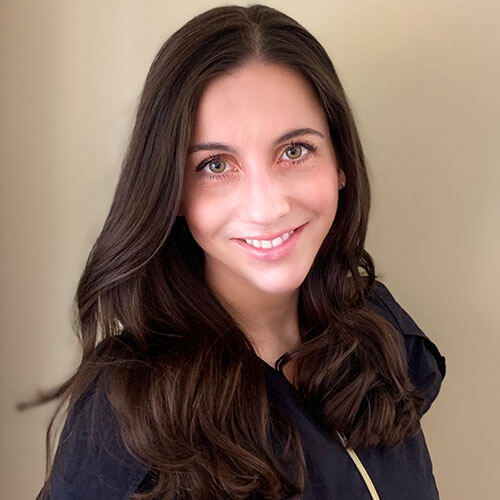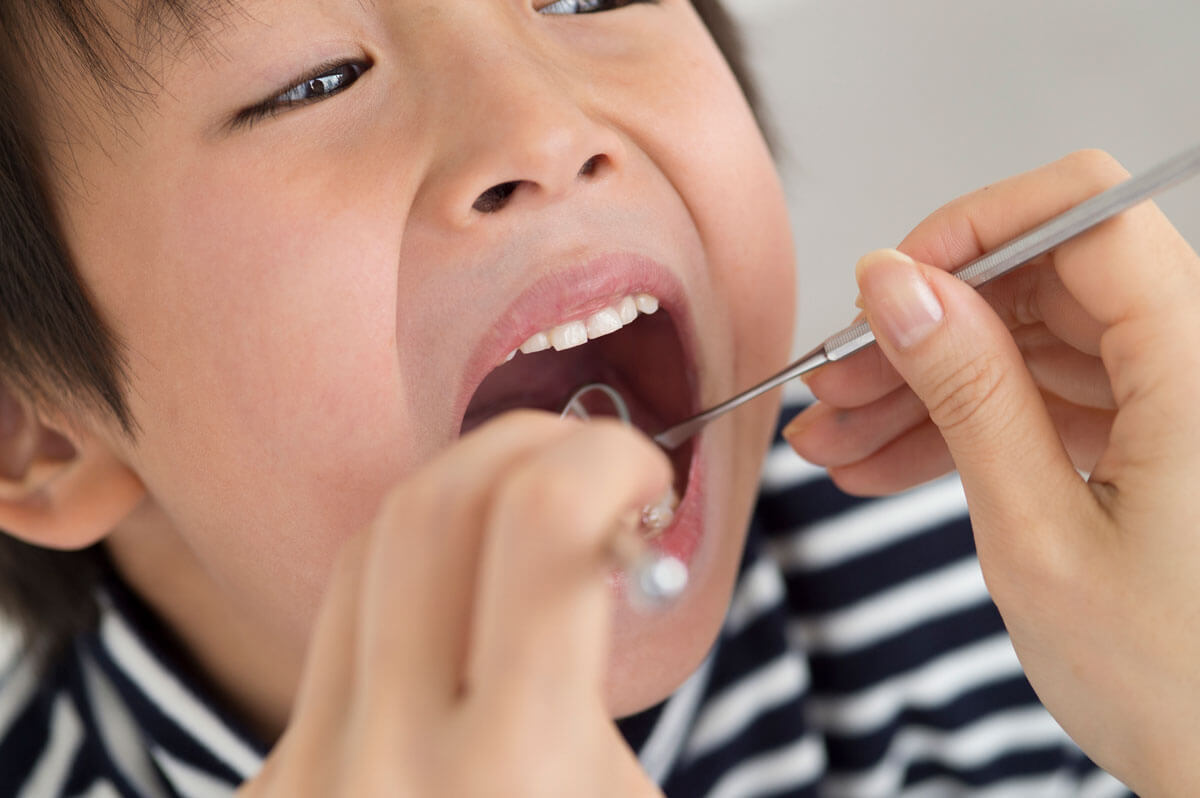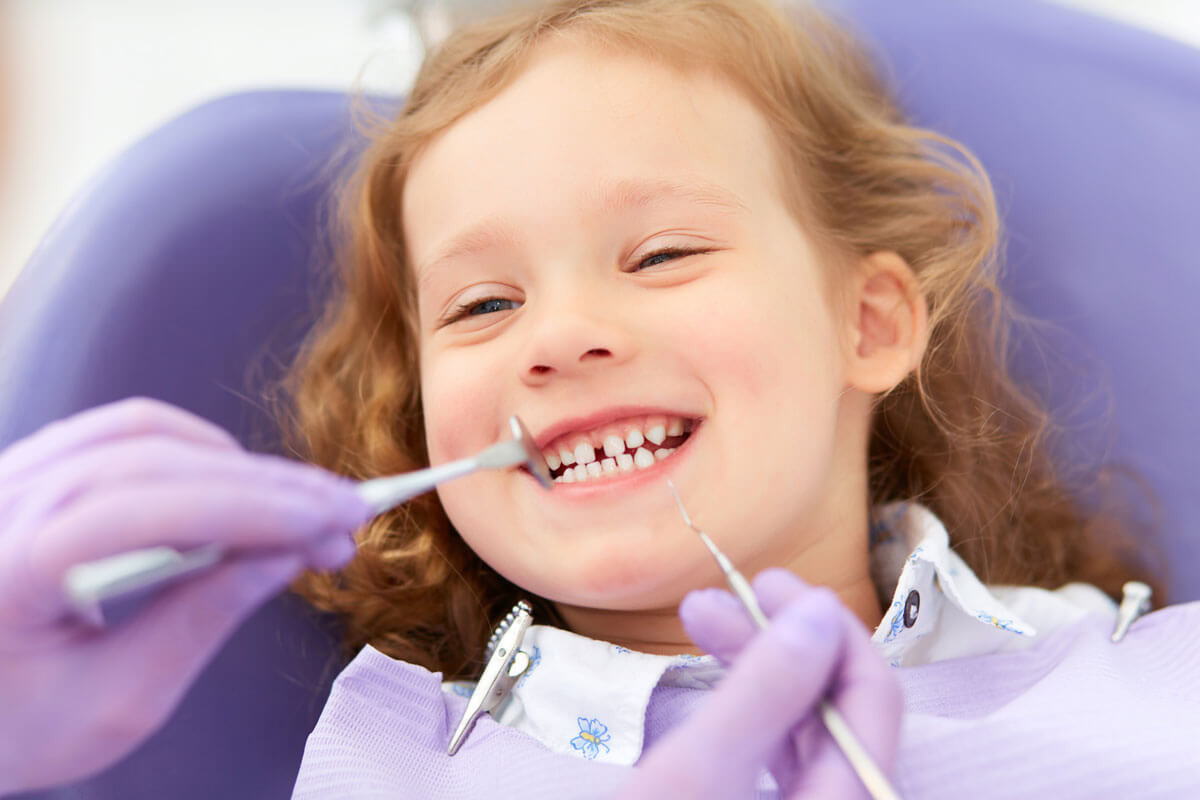Pediatric Dentistry in Brooklyn, NY
A&R Advanced Dental Group specializes in pediatric dentistry in Brooklyn, NY. Call us today at 718-376-1666 to schedule a pediatric dental appointment.
Meet Our Brooklyn Pediatric Dentist

Recognized among the best pediatric dentists in Brooklyn, Dr. Liza Idelchik strives to provide the very best dental care to children of all ages and needs.
Dr. Idelchik has been the recipient of numerous awards and merits including:
- Certificate of Merit AAPD Award
- Eleanor Bushee Dental Award
- Dr. Bernard E. Rudner Memorial Award
- Dean Edward G. Kaufman Merit Award
- Selective in Teaching Skills Appreciation Award
- Dean Edward G. Kaufman Award
Your Child’s First Visit with our Brooklyn Kids Dentist
Our goal is to set children up for a lifetime of good dental care and a lot of healthy little smiles. The best time to bring a child in for their first dental visit is actually within 6 months of the eruption of the first baby tooth or by 1 year of age in order to prevent dental problems and examine the oral cavity. Baby teeth are vulnerable to tooth decay from the first appearance in the mouth and studies show that children who waited to see the dentist until 2-3 years of age had more preventable emergencies and restorative needs costing parents 40% more in dental costs over the first 5 years of life.
We know that being a parent can be stressful and we are here to put you at ease and arm you with information on how to keep your child’s smile shining. The first visit is a great time to start desensitizing your child to the dental office by making the visit a fun and interactive experience with our gentle doctors. We evaluate not only the teeth and mouth, but also proper facial development as well as help set up healthy habits at home. We recommend bringing a comfort object for the child like a stuffed animal and always welcome parents to join in during the exam at the dental office so that we can make the visit relaxing and fun.

Preventative Dental Care for Children
Would you believe us if we told you it is possible to prevent dental decay and toothaches for optimal dental health? Tooth decay is the most chronic disease of childhood, yet it is completely preventable. That is why it is important to visit us when the child is healthy during regular check ups and cleanings at the dental office so that we can prevent disease before it can start!
Why are baby teeth important you might ask since they ‘will fall out anyway’? Parents are surprised to learn that some baby teeth will actually stay in the mouth until the child is 12 years or older. Baby teeth also serve many functions for children including chewing to foster good nutrition, aiding speech development, helping permanent adult teeth and the jaw develop properly by space maintenance, and aiding a child’s self confidence when they have a healthy smile. Children who have poor dental health tend to miss school and receive lower grades than their counterparts due to pain and infection. Additionally, undetected tooth decay can lead to larger infections, damage to permanent adult teeth and expensive emergency and restorative treatments.
By having regular check ups with a dentist we can prevent or detect cavities before they have a chance to cause pain and give peace of mind for parents. We also complete a thorough cleaning and remove buildup that a child or parent may have difficulty removing with a regular toothbrush at home, provide fluoride treatments to protect against decay, and teach children how to take care of their teeth in a fun and interactive environment in our dental office.

Looking for a Pediatric Dentist Near You in Brooklyn?
We provide exceptional dental care to children and adolescents from nearby communities, including Sheepshead Bay, Homecrest, Gravesend, Marine Park, Bergen Beach and Mill Basin. Call 718-376-1666 to schedule a dental appointment for your child.
Frequently Asked Questions About Pediatric Dentists in Brooklyn
What skills do you need to be a kids’ dentist?
Pediatric Dentists are unique in their love for children and are highly skilled at working with this specialized age group. It is a profession that requires exceptional patience, adaptability, compassion, communication, and interpersonal skills. It is one of the few, if not only, professions where dental surgery procedures are completed on infants, babies, children, and adolescents in an office setting, usually without general anesthesia. Therefore, it truly takes a special individual to handle any challenges, concerns, and complex topics around kids’ dentistry that arise with both a child and the parents.
What makes a good children’s dentist?
A good children’s dentist takes into account the health and welfare of the child, arms both the parent and child with information in detail about oral health and development, and eases anxieties. A great dentist can also do so while making a trip to the dentist a fun and exciting one for your little one. Great pediatric dentists like Dr. Idelchik, are kind, gentle, knowledgeable, experienced in pediatric dental medicine, and know how to make a trip to the dental office a fun one!
What is a kids’ dentist called?
A children’s dentist can also be referred to interchangeably as a pedodontist. Pedodontists specialize in the care of infants, babies, children, adolescents, and young adults. They check not only the teeth, but the entire mouth, head, and neck region and specialize in the growth and development of children. They diagnose and treat dental disease and pediatric dentists with additional training beyond residency like Dr. Idelchik can also diagnose and treat tongue, lip, and cheeks ties. Many parents are also surprised to learn that pediatric dentists with additional training in children’s dentistry can also address airway and feeding issues for children. Pediatric Dentists that have completed training in a children’s hospital are also comfortable treating children with complex medical issues and disabilities.
At what age should a child go to the dentist?
The guidelines from the AAPD (American Academy of Pediatric Dentistry) recommend that a child should see a dentist within 6 months of the first tooth or by age 1 to create a dental home. This visit helps arm parents with the individualized information on how to properly care for their little one’s teeth, monitor growth and development and address any harmful habits. Many parents also take infants and babies to the dentist before teeth erupt to address issues like tongue, lip and cheek ties that can impact feeding, sleep and speech. Unfortunately, many general dentists will only see children from ages 3+ when many issues could have been addressed earlier. Therefore, it is highly recommended to see a dentist since they have additional training to not only treat children this young, but also have the experience to feel comfortable doing so.
What is the age limit for a children’s dentist?
Pediatric Dentists see a large age range between infancy to early adulthood due to their extensive training. Pediatric Dentists typically continue to see patients until age 21 depending on their needs and development.
Why is dentistry for children important?
Pediatric Dentists have additional training and unique skills to diagnose, treat and set up your little ones for optimal oral health as well as growth and development for the rest of their lives. Similar to how many parents opt to take their children to a pediatrician over a family practitioner, pediatric dentists have additional knowledge in this sub-specialty to diagnose issues that can often be overlooked and work well with your children so that they have positive experiences from an early age. Early preventative care such as regular checkups and cleanings with a dentist can limit the need for extensive dentistry treatment later on.
What causes decay in children’s teeth?
Dental decay is multi-factorial, meaning that there are many factors that can lead to it. There are specific bacteria associated with tooth decay such as streptococcus mutans. This bacteria can actually be acquired from a child’s caregiver during the early years of infancy if a parent shares utensils, licks a pacifier before giving it to the child, and more. So if you are a parent who has lots of dental work completed yourself, you may want to talk to your dentist about how you can best prevent transferring this bacteria.
Bacteria by itself won’t cause tooth decay, it needs sugar to make acid which in turn causes cavities in teeth. Sugary foods that stick to your teeth like gummy bears and taffy can significantly increase the risk of tooth decay. Large amounts of sugar are also found in sodas, sports drinks, and juices.
Lastly plaque on our teeth increases the chance of getting dental decay. Remember to brush twice a day for two minutes, floss once a day, and rinse with mouthwash. A professional cleaning twice a year along with preventative dentistry treatments like fluoride and sealants are helpful to reduce the risk of tooth decay.
How often do you take a toddler to the dentist?
Usually, you want to bring your child to the dentist every 6 months at least for routine kids’ dentistry care such as cleanings, check-ups and fluoride treatment. A professional cleaning and polish gets tarter off that otherwise a regular toothbrush cannot. Additionally, the dentist monitors your child’s growth and development and can catch dental problems early on before they require extensive dentistry treatment. Some children who are at high risk for cavities, have complex medical issues, or just need more office desensitization may require more frequent visits.
What happens at your child’s first dentist appointment?
At the first dental visit, you can expect the pediatric dentist to do a thorough check of the head, neck and mouth, clean your child’s teeth and place fluoride treatment. The pediatric dentist also teaches both the child and the parent how to best take care of the oral cavity and give personalized advice for each child. Dr. Idelchik recommends and gives advice on research, evidence and up to date children’s dentistry guidelines but also respects parental wishes within reason. X-rays are usually recommended once the teeth no longer have spaces between them and if the child is old enough to cooperate for them.
Do you need to fill cavities in baby teeth?
Depending on the size of the cavity, age and behavior of the child the answer can vary. Dr. Idelchik takes on a conservative approach and focuses on the root of the problem before jumping to drilling and filling. When a child comes in for regular care, the pediatric dentist can catch cavities that are only starting to form and make kids’ dentistry recommendations on how to re-mineralize them or at the very least, have them stay the same size if they are still in enamel, the outer layer of the tooth. Research shows that with specific hygiene practices, diet changes, and in-office conservative treatment, these cavities can be managed without fillings if caught early.
Some children with cavities may not be cooperative enough or may have medical issues that do not allow traditional children’s dentistry treatment. Dr. Idelchik uses Silver Diamine Fluoride which is a special “no drill” cavity treatment used for specific cases when traditional fillings cannot be placed. It requires no numbing or drilling to be placed.
Regardless of what approach to children’s dentistry is taken, it is always important to address any cavities or dental problems. Baby teeth can hang around up until age 12 or later and are very important for speech, feeding, jaw growth, and development, and an infection in a baby tooth can affect the permanent tooth forming underneath.
Are dental sealants safe for my child?
Dental sealants are a proven and safe method for both children and adults for cavity protection in the pits and grooves where cavities typically start. These dental treatments are quick, painless, and requires no drilling or anesthesia. The sealants our office uses are BPA-free and the same color as your teeth. Dr. Idelchik can also seal teeth that may have cavities beginning to form since children’s dentistry research shows that it does not progress if it is sealed in the early stages. She uses this conservative method to prevent unnecessary drilling.
My child has special needs and doesn’t sit well in a dental chair. Should I still bring him regularly or just when there’s a problem?
Routine Care is vital to preventing problems in the first place whether or not your child has special needs. Waiting until there is a dental emergency or pain would actually make dental visits more difficult for your child. Desensitization also plays a big role in getting children of all medical histories, ages, and comfort levels used to the dental office environment. Depending on the circumstance, your pediatric dentist may recommend more frequent visits since it also allows us to monitor oral health with children that may be unable to communicate if they are experiencing pain or other dental problems. We work with you and your child to make adjustments and accommodations so that they can have a safe and comfortable experience.
Why do you recommend coming twice per year when my dental insurance only covers once per year?
Having a check-up twice a year allows us to catch dental problems early on when they are easier to treat, ensure good oral habits, and provide the best possible care for your child. We practice in accordance with evidence-based guidelines set by the American Academy of Pediatric Dentistry (AAPD) and the American Dental Association rather than what dental insurance companies dictate.
Why should I use your dental office for my special needs child?
Dr. Idelchik, our pediatric dentist, has extensive training and experience working with children who have disabilities and complex medical histories. She works with you and your child to provide individualized, compassionate, and gentle care. Additionally, she values the importance of the entire medical team of dental professionals and takes additional time to work together to deliver excellent and safe care at our dental clinic.
How often do you take a toddler to the dentist?
Just like adults, children should see their dentist every six months for comprehensive oral evaluations and dental cleanings. This isn’t just our recommendation, but also the recommendation of the American Dental Association and American Academy of Pediatric Dentistry. Preventative care isn’t just important for keeping teeth and gums healthy, it also helps your child become more familiar with our dental clinic, our team, and the steps involved in dental check-ups.
Does my child need a dentist for children?
A family dentist may see a handful of pediatric patients each week, while a dentist for children treats several children a day. Because pediatric dental care is the focus of their practice, they have more experience and a deeper understanding of children’s oral health needs. You can feel confident knowing that your child’s dentist has the knowledge and skill to provide the best possible dental treatments.
When should a child’s first dental visit be?
The best time to bring a child in for their first dental visit is actually within 6 months of the eruption of the first baby tooth or by 1 year of age in order to prevent dental problems and examine the mouth. These early visits allow us to not only ensure that their teeth are coming in as they should but allows us to also check growth and development. This also gives you the opportunity to ask us questions and learn more about caring for your little one’s oral health.
What happens at a 2-year-old dentist appointment?
At the dental visit, you can expect the pediatric dentist to do a thorough check of the head, neck, and mouth, clean your child’s teeth and place fluoride dental treatments. The dentist also teaches both the child and the parent how to best take care of the oral cavity and give personalized advice for each child. Dr. Idelchik recommends and gives advice on research, evidence, and up-to-date guidelines but also respects parental wishes within reason. X-rays are usually recommended once the teeth no longer have spaces between them and if the child is old enough to cooperate with them.
